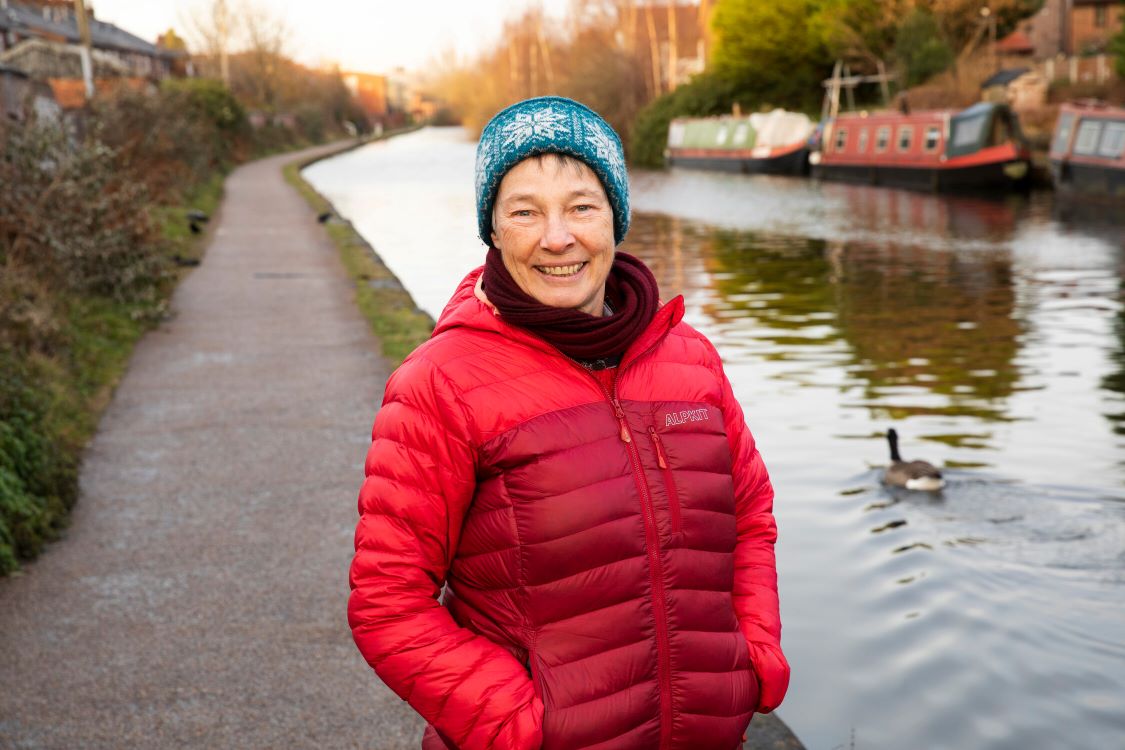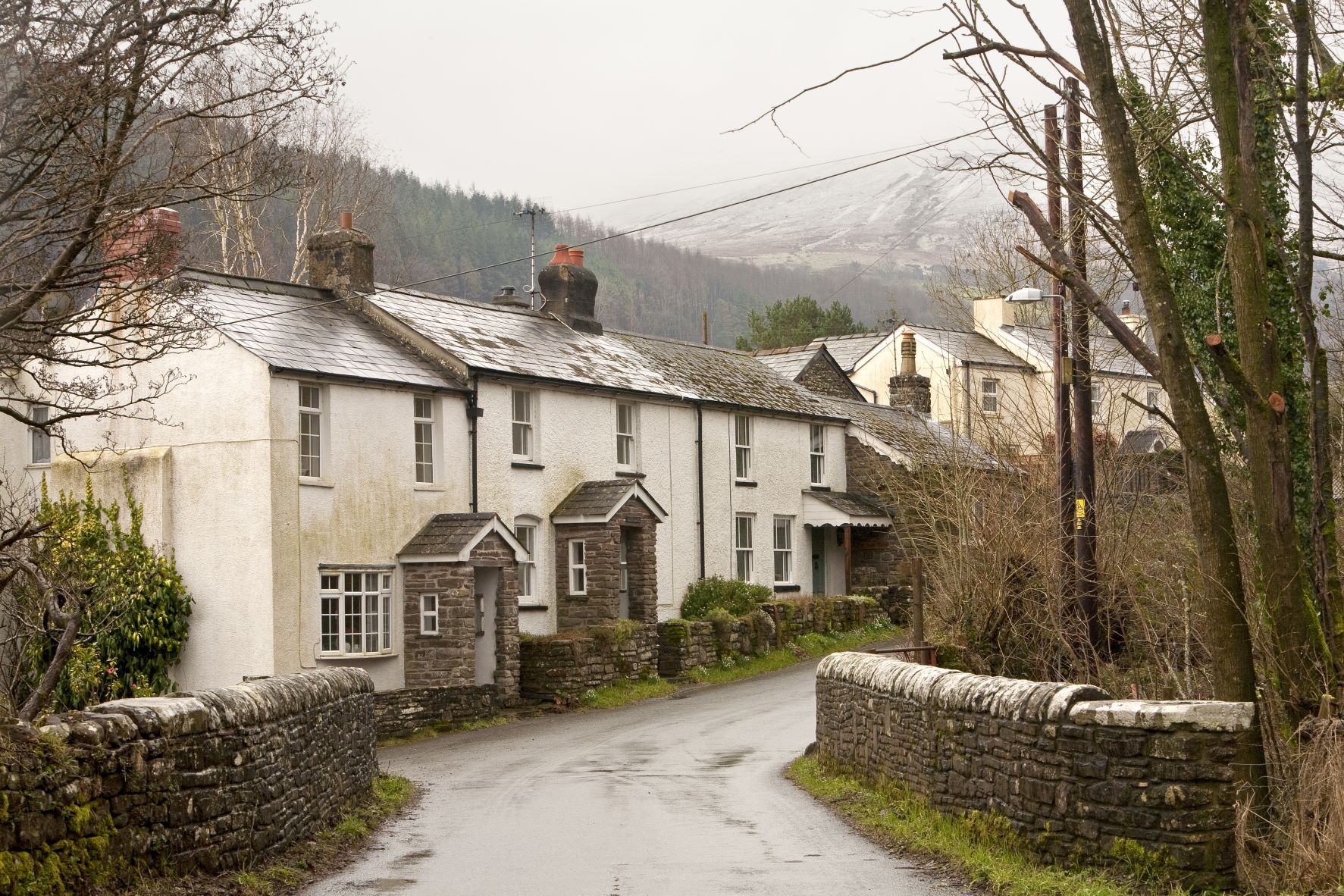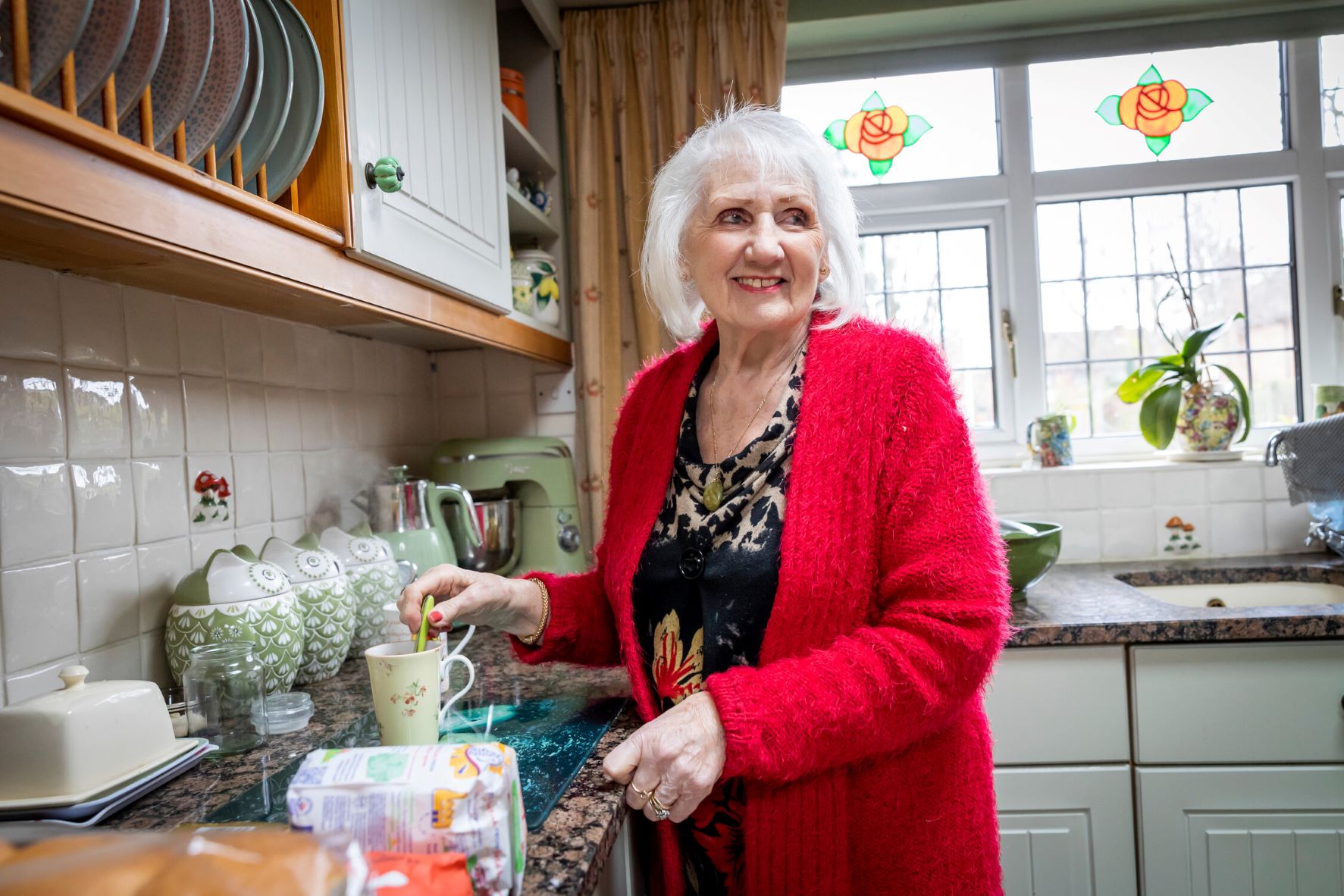30 Winter Safety Tips For Those in Later Life
Stay safe, warm and connected with our must-read winter safety tips for older people in Wales.


We all know that ice and snow can make pathways and pavements slippery and greatly increase the risk of falling over outdoors. Take extra care, take your time and don’t be afraid to use a walking aid if it helps. If you use a walking stick, check the base to make sure it’s not worn and still has a good grip. You should be able to get a ‘walking stick MOT’ free of charge in your local area.
Dark mornings and evenings can also increase your risk of falling. If you have to go out in the dark and the area isn’t well lit, take a good quality torch or lantern with you.
When wrapping up warm, pay special attention to your fingers and toes. They need extra protection. You may not always be able to feel how cold they are, especially if you have certain medical conditions that affect your circulation.
If you’re out celebrating over the festive season, don’t forget that even a small amount of alcohol can affect your ability to feel the cold. This effect gets stronger as we get older, and can be further increased by certain medications. If you’ve had a drink, be aware that your actual body temperature will be colder than you feel!
Try to keep up with the weather forecast, and if there are warnings in your area listen to them. Sometimes local authorities will advise people not to make any journeys that aren’t essential because of bad weather conditions. Trust your gut instincts, if it doesn't feel safe for you to go out then don’t go.
Know what you plan to do if ice and snow make it difficult or dangerous for you to leave home for a few days. You may want to keep some additional supplies of tinned food, milk, toiletries and any essential medications in case conditions make it hard for you to get to the shops or the chemist.

Make sure that your boiler service isn’t out of date. Your boiler should have a sticker telling you when it was last checked and when it’s due for a new one.
Make sure your radiators work efficiently. They might need ‘bleeding’ to release any air that’s built up in the system.
Ask yourself, do you feel confident using your central heating controls? Some systems come without full instructions, and they can be confusing to operate. This is a common problem, and you can get help and advice if you need it.
Ensure that there are no draughts around your doors and windows that let out the heat. Often these can be cheaply and easily fixed by using self-adhesive insulating tape or home-made draught excluders.
If you’re concerned about your heating bills, get advice to make sure you’re claiming all the benefits you’re entitled to. Some of these benefits come with extra help toward your heating in the colder months. You should also check your utility bills when you get them. Mistakes do happen! Especially if your bills have gone up suddenly without an obvious reason, it could indicate a fault in your meter which leads to you being overcharged.
Electric heaters are safe if used properly, but they can be expensive to run. They can also pose a fire hazard if left on too long or covered up. Check that yours are in good condition and that you have somewhere safe to put them when in use.
Being cold can bring additional health risks. It’s recommended that you keep your home between 18 and 24 degrees Celsius. You can get a wall thermometer to make sure the room you’re in is warm enough.
If you haven’t already, get your flu jab and any other vaccinations that your healthcare provider recommends for you.
If you take medicine, make an appointment for a medication review. These should happen regularly, at least once a year and more often if your doctor advises. Many chemists have free prescription re-order and delivery services, so use them if they make things easier for you.
If your main method of getting exercise is going for a walk, you may understandably find yourself avoiding it during cold, wet weather. Think about other kinds of exercise that you can do at home instead. Your local NHS health board will have plenty of advice and guidance about finding an at-home exercise routine that works for you.
It’s very important to stay hydrated, even in colder conditions. For most people, the best way to do this is to take regular small sips of water rather than having one large drink every few hours. If you can, have a drink before you start to feel thirsty. Too much tea or coffee can actually remove water from the body, so if you have a lot of hot drinks then be sure to have some water throughout the day as well.
Nutrition is especially important in the cold winter months, as our bodies burn more energy to keep us warm. Make sure you’re eating enough, even if you don’t feel particularly hungry; this might especially be the case if you’re not very physically active or if you’re not feeling well. Many people find it easier to have a few smaller meals and snacks over the course of a day than one large meal. Again, your local health board will have a wealth of free information and guidance on healthy eating. If you struggle with your appetite, your GP might be able to refer you to a dietician for specialist advice.
Cold hands become stiff. Take extra care when cooking, peeling or chopping ingredients, lifting hot pans or pouring from boiling kettles. There are many aids, gadgets and devices which can make these things safer and easier. Your local health board will have an Occupational Therapy service that may be able to help.
Know what to do if you are unwell. Your local health board will have plenty of resources that will help you to understand who to call, depending on what the problem is. This might be your local chemist, your GP, a clinic or hospital department already involved in your care, or the emergency 999 service. You can call NHS Wales by ringing 111, 24 hours a day and 7 days a week; they can listen to your symptoms and direct you to the right service for you.

Although many people prefer to huddle up at home over the winter, there are still many opportunities to connect with people and be social. There will be events and activities in your local area that you can consider joining in with. Most areas have an association of voluntary organisations who will have information about what’s going on. There may also be a community newsletter that you can sign up to. Many areas have listings of events and activities in the local paper.
Getting online can be a great way to keep in touch with people in your local area and connect with friends and family, whether they’re just over the road or all over the world. There are numerous clubs and classes that can help you to use the world wide web safely and enjoyably, and help build your confidence using new technology.
Feeling alone, or not having enough to do, can make us feel anxious and depressed. If your mental health is not good, physical health can easily be affected. Look for ways to stay connected with others, feel usefully occupied and do things you enjoy. If you do start to feel as if your mood is low or find it difficult to relax, talk to your doctor. There are things that could help. This may include medication but that’s not the only option, especially if you don’t want it. Your mental health is just as important as your physical health.
Many organisations run ‘befriending services’, which you can sign up to for regular chats with a volunteer, sometimes face-to-face but most often by telephone. We can help you to find out what’s available to you.
Cold weather also makes our muscles more stiff, and that increases the risk of falls in the home as well as outdoors. Be especially careful with anything that might make you slip or trip, such as objects on the floor, un-secured rugs or even pets!
Make a list of emergency numbers and keep it near your phone. If you have a mobile phone, you may want to save the numbers. Your list should include friends and family who can help you in an emergency, and professionals that you might need to contact if something goes wrong: electrician, plumber, garage mechanic if you drive, your doctor and any healthcare professionals who help look after you.
If you live in a flood-prone area, make sure you know what you’d do if you have to evacuate due to flooding. Who would help you? Where would you go? Your local authority will be able to provide emergency shelter if you need it, although this might not be the most comfortable option for you.
Keep all your important documents in a safe place, and tell somebody where they are in case you can’t get to them. You may want to make copies and give the copies to someone you trust for safekeeping.
Having a mobile phone can be really useful in emergency situations, even if you don’t want to use one in everyday life. Basic phones are available which don’t have any complicated features, and some have adaptations like easy-press buttons and large-print screens for people who find most mobiles too fiddly.
Family, friends and neighbours might want to organise a regular time to phone each-other during bad weather conditions, just to check that everyone’s alright. Even if you don’t need help, it can be reassuring to you and them to have a regular catch-up at a pre-arranged time.
Care & Repair can provide practical help with most of these winter safety tips. Where we can’t assist you directly, we can usually put you in touch with somebody who can. Contact your local Care & Repair to access our services.